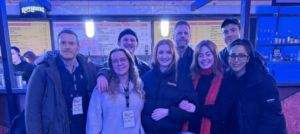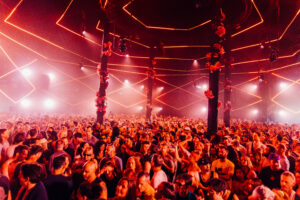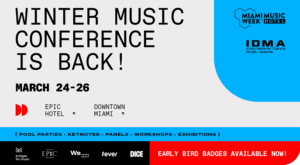Dear Resident,
Live music has a unique power to bring people together, creating connections that transcend the digital world. But in the context of inner-city parks, there’s an ongoing conversation about how these spaces should be used, especially when it comes to the communities they serve. This letter offers a perspective on how live events and local communities can look to coexist harmoniously.
Reflecting on the challenges festivals currently face amid rising costs in a crowded market, John Harris, columnist for The Guardian, aptly sums up the impact of social exclusion and social media: ‘Most of us worry about how much human beings directly interact with each other and the way that social media has sown misery, division, and mutual loathing. But here was something completely different: a temporary town where people happily chatted with strangers and enjoyed themselves to the full while respecting the necessary rules.’
This letter aims to offer a different perspective: while we understand the concerns raised by some community members about noise and possible disruption, it’s important to remember that the broader benefits these events can bring – cultural enrichment, economic support for local businesses, and a sense of shared community. We believe these events can continue to thrive alongside local neighbourhoods through dialogue and collaboration. Therefore, I actively encourage you to remember a time at a festival or event (music or non-music) that has shaped your experience.
Pleasure Gardens, The People’s Park
London’s public parks, from Victoria Park in 1842 to today’s more contested spaces, were created to offer green space and community engagement. While parks were once home to bandstands and open-air performances, tensions between park authorities and local groups have emerged in the last few years, often due to noise and accessibility concerns linked to large-scale events. However, initially designed for public enjoyment, these spaces can still play an essential role in supporting cultural events.
When I first started thinking about this letter in March 2024, there were reportedly 21 festivals in the UK that had been cancelled. By the end of 2024, that number had more than tripled, hitting 72.
The current landscape for independent music festivals is daunting, not only for those attending but also those who call an empty green field their office. Although I’m not here to talk about rising costs and cancellations, this letter aims to deliver an alternative perspective to you, the local resident. So, why exactly are festivals so important?






Festivals offer a diverse range of experiences, as highlighted by NTIA’s NTE report for 2024. A survey of 36,000 festival-goers conducted for the DCMS Committee in 2021 revealed that people highly value the mental health benefits, the opportunity to forge wider friendship groups, and the feeling of being surrounded by like-minded individuals that festivals provide. The UK Music report noted that 6.5 million music fans had unforgettable experiences at UK festivals in 2022. Additionally, festivals significantly boosted the UK economy, contributing £1.75 billion in 2019. These insights underscore the multifaceted value of festivals, emphasising their role in enhancing well-being, fostering social connections, and supporting economic growth.
Coming together for a shared experience can create a sense of community for friends, family, and even strangers. They actively promote inclusivity and diversity and offer financial boosts to local areas, among other benefits.
Behind every event is a team of people, from small independent businesses to freelancers, who rely on the fluidity of using inner-city green spaces. While councils across the country are facing financial pressures, with parks, leisure facilities, and arts and culture being the first to feel the burden, events in public green spaces are critical for plugging the funding gap.
Local community groups, such as the “Friends of” groups, play an essential role in advocating for the protection of parks. However, in some cases, concerns about large events could possibly be based on misconceptions. We must approach these conversations with transparency and an openness to collaboration so that residents, event organisers, and park authorities can work together to ensure the sustainability and enjoyment of these public spaces.
For example, Haringey Council recently opened a new skate plaza in Finsbury Park, a direct £145k investment made possible by significant events in the park, such as Wireless Festival. The council receives around £1.2 million from events annually, all of which is reinvested directly into maintaining and improving the park.
Haringey Council and The Friends of Finsbury Park partnered to bring the project to life, following a consultation period in which the public showed enthusiasm for the park.
From our experiences, stakeholder management and consultation periods have benefitted local stakeholders and event organisers—aside from the usual procedures put into place, residents’ hotline and cheaper or accessible tickets. To show our commitment to positive community engagement, Maiden Voyage & Jazz Café has launched several initiatives in partnership with local organisations. These include a mentoring scheme for young people, an art installation designed by local youth, paid work experience to an 18-year old wanting to gain experience in the industry and DJ workshops for children under 12. These projects are part of our ongoing efforts to connect with the community, build trust, and ensure that events are accessible and beneficial for everyone involved.
When we work together, festivals and communities can thrive. Let’s continue the conversation, share ideas, and build partnerships that respect the vibrancy of live events and the peace and well-being of our local neighbourhoods. Only through mutual understanding can we ensure that our parks remain places of cultural celebration and community connection.
Warmest Regards,
Liberty Taylor, Production Manager at The Fair.




